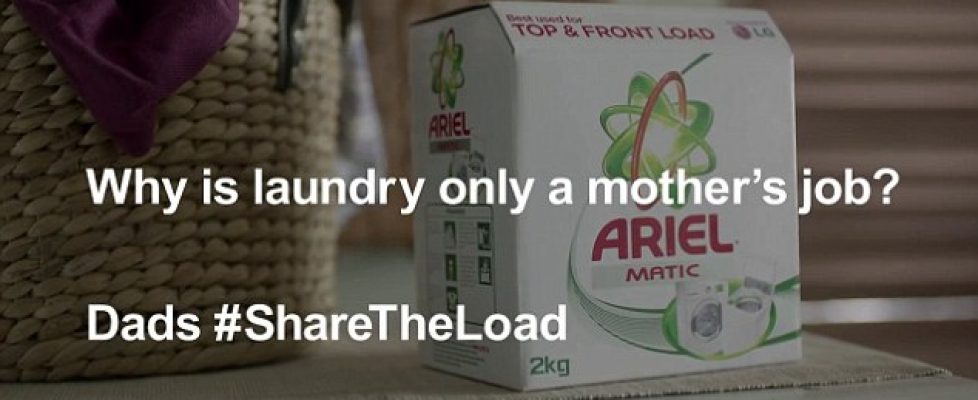Bold within bounds: The art of challenging Social Injustice while playing it safe
Storytelling is an empowering tool that brands have always taken to, in order to create relatable and more meaningful content that would typically stick around for a while. And in this age of digital economy and free markets, marketers have employed creative storytelling coupled with social causes to keep their customers coming back to them. It is somewhat a marketing 101 recipe that you could replicate to get standard results (of repeat customers in this case).
I’m going to look at a similar attempt by ‘Ariel’ India in order to determine the relationship between content creation for profits and the company’s long term values in the light of heavy topics such as social injustice and gender inequality. Ariel is one of the brand children of the popular and as some might say, influential conglomerate ‘Procter and Gamble’. It released an advertisement in 2018 under the campaign #sharetheload which gained significant momentum and gave birth to a larger campaign touching base with other brands under it as well.
This advertisement gives an emotional account of a father narrating a letter to his daughter after observing her at home, being in charge of all the household chores after a long day at work. He is apologizing to his daughter for years of injustice through a 2 minute video. He is also conveying his desire to do something about it. The film starts with an apology highlighting the problem and ends with a solution and a question challenging the idea of women having to do all the work at home.
I found an interesting gap in this communication from Ariel: where it’s vision page suggests a different story altogether. It’s vision clearly states that it’s products are designed to help empower women remove stains from their clothes, and give them an upgrade on their ‘household duty’ of washing clothes. This gap, according to me, could be either a cover up to steer the direction to fit their new audiences, or a delegation of content production to an agency who is not in alignment with the vision of the brand. I would place my bet on the former argument as brand communications are very well strategised and funded in organisations like PnG.
Another issue about the brand advert was the explicit problem-solution model approach that dismisses the multi-faceted complexity of the issue. It simplifies social injustice and places a ‘quick fix’ that speaks directly to the commercial interests of the product/ brand itself (the solution being the washing powder used as a tool to facilitate immediate change). This relates to Sarah Banet Weiser’s connection of narratives around consumption culture and empowerment in the context of ‘Popular Feminism’, that are usually employed often by big brands as a way to be a part of the pseudo movement.
The visual language of the film and the mise-en-scene is of a privileged urban class home which represents the consumer profile and typical target audience.
This is problematic on two levels- first, it connects to ‘economies of visibility’ explained by Weiser which suggests that only a few people are given preference and representation, usually someone with a particular standard of living in the context of economic and educational strata. This represents just 1/3rd of India’s population (which is of course privileged). And second, it reinforces the same stereotypes on screen. This all comes back to what is really profitable, hence proving that their PSA isn’t as altruistic as it might come off.
I would say that the implicit subtext of not giving the woman a voice while presenting her story is basically a coveted way of reinstating that, women should remain the primary caretakers and responsibility bearers of the home and men should help them #sharetheload (making them the protagonists/ heroes saving the world).
I think this is a typical communication style of several brands trying to engage with the consumer in a safe yet bold way, playing the field in a safe enough way to not offend anyone and get battered in a controversy or censorship and just bold enough to gain the title of a thought provoking ad.

